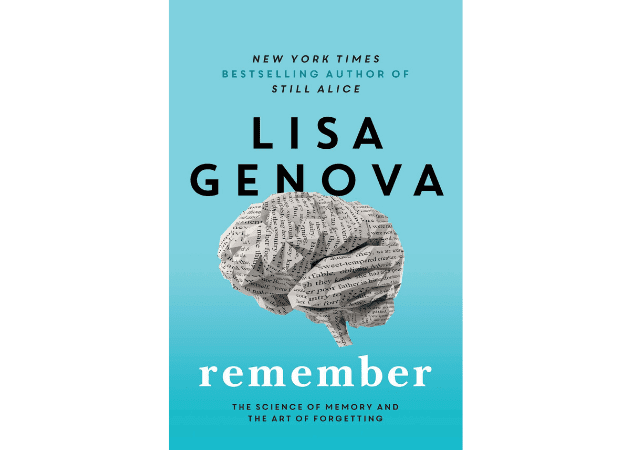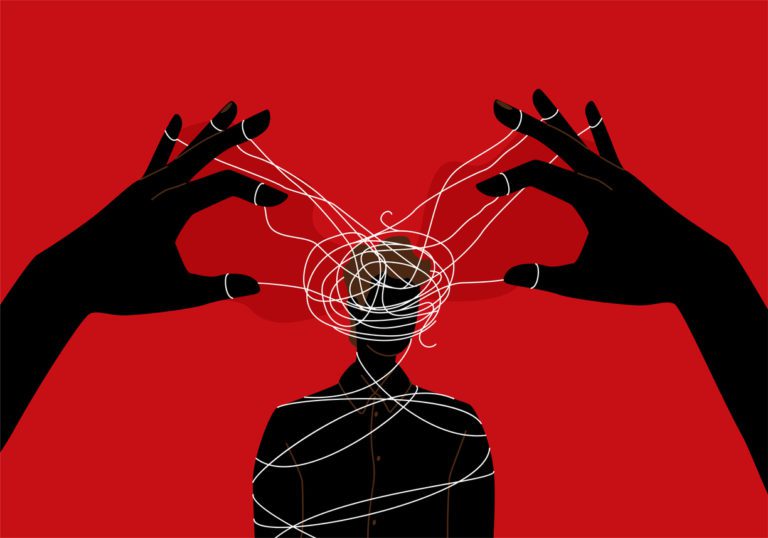There’s a particular question Lisa Genova is always asked during her public speaking events. People approach her after book signings or quietly corner her outside the bathroom to confess their worries about their ‘bad’ memories.
The American neuroscientist and bestselling author has been talking about Alzheimer’s disease for over a decade, ever since she self-published her first novel Still Alice, about a Harvard professor who suffers from early-onset Alzheimer’s. The book became a huge success and was made into a film starring Julianne Moore. Since then, Genova has become a go-to expert on the topic of Alzheimer’s and neurological disorders.
“I’ve found pretty much without fail after every talk I give, people want to turn the discussion toward what they’re forgetting,” she says. People will share their concerns about forgetting their keys, or walking into a room and not knowing why they’re there. “What I can tell all of them is that none of those examples of forgetting are signs of Alzheimer’s. They’re all normal.”
These encounters inspired Genova to write her first non-fiction book, Remember: The Science of Memory and The Art of Forgetting. She describes the book as a way to relieve some of the stress people have about their memory by explaining how and why it works. “This world is so stressful, but stressing out about forgetting, that is actually normal … I can take that off of people’s plates. That’s why I wrote this book.”
There are plenty of big misconceptions when it comes to our concept of memory, she says. “There’s this false assumption that your memory is supposed to be perfect. It’s not and it never was.” Having a word at the tip of your tongue or forgetting the name of an actor in a movie can happen at age 20 or 65.
But for older people, these instances of forgetting often bring up fears of Alzheimer’s. “Mortality, memory loss, ageing, all those things are so much more immediate [when you’re older], so people jump to the fear that they’re losing their mind and memory.”

Many complex processes go into forming a memory. First off, you need to pay attention. Memory doesn’t work like a video camera recording everything you see and hear, she explains in the book. It only captures and retains what you pay attention to.
“Anything that steals your attention is also a memory thief,” she says. “These days, there are so many distractions with our phones, especially in social media, that it’s hard to finish your train of thought sometimes. And yes, it’s very easy to put your glasses down while you’re doing something else, and you cannot form a memory if you’re not paying attention.”
Recalling is another vital part of memory-making. Every time you recall a moment, you’re strengthening neural pathways in the brain to form a long-term memory. Yet what you’re going to remember is never going to be perfect. A memory is vulnerable to editing and distortion. “We omit bits, reinterpret parts, and distort others in light of new information, context and perception that are available now but weren’t back then,” Genova explains in the book.
This leads to an interesting paradox. In order to remember something, you have to recall it. But every time you do so, it changes the memory. In the end, we just have to accept that memories are flawed. The other thing we should accept is that forgetting isn’t always a bad thing. In fact, it can be good for us.
“People think that memory is this war in your brain, between the good guy, which is remembering, and the bad guy, which is forgetting. And we’re hoping that the good guy wins. But that’s not how it works. And forgetting is really essential to our ability to function,” says Genova.
How exactly? Think about a typical day for you. If you were to write everything you experienced on a white board and tried to learn it all, you would end up being incredibly overwhelmed. “Our brains remember what is meaningful, emotional, surprising, new, significant. It forgets what is ‘same old’, nonconsequential, routine stuff. Which is great because we don’t really need to remember the details of every morning shower. It gets rid of the background so that we can focus on and use the meaningful, emotional and new.”
But if you want to support your memory, what practical things can you do? Everyday forgetting could be influenced by poor sleep, stress, diet, exercise and even a vitamin B12 deficiency, says Genova.
Practising gratitude is one way to strengthen the neural pathways of memories. By focusing on positive experiences, you’ll look back on your life with a positive outlook. “Those moments of awe, appreciation, gratitude, wonder and abundance – those memories will be the story of your life.”







